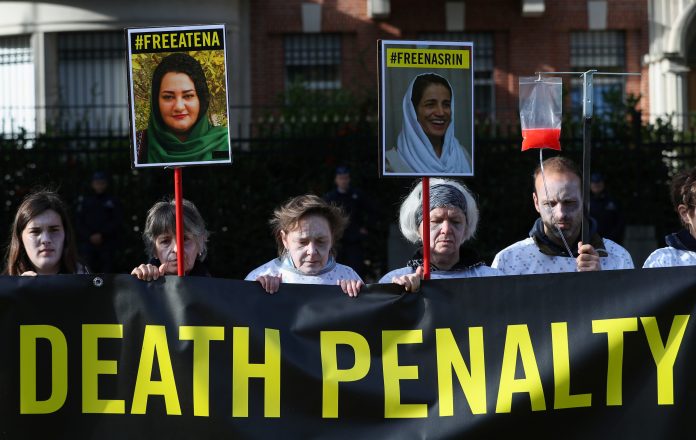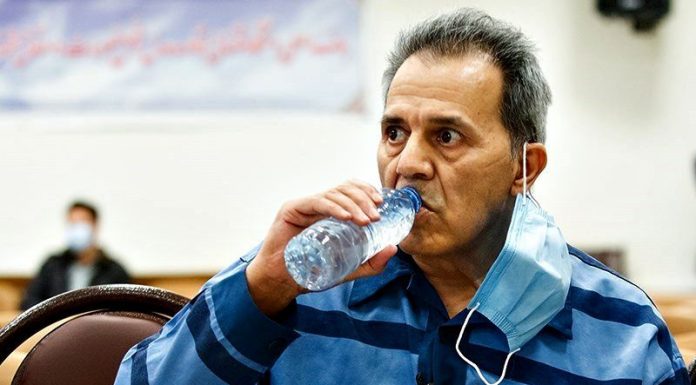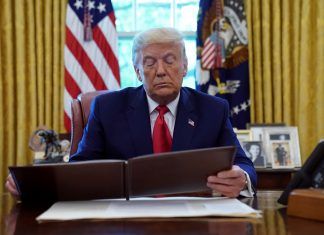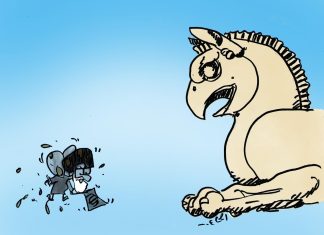
Amnesty International has urged the United Nations to take “a more robust approach to the human rights crises in Iran” and other countries.
The statements were made in a Feb. 23 briefing paper published ahead of the UN Human Rights Council’s 49th session, which is being held in Geneva from Feb. 28 to April 1, and included a series of recommendations for the council. In the report, Amnesty urged the UN to create an independent mechanism to investigate what it called “entrenched impunity” for the most serious alleged crimes committed by Iran’s government under international law.
Amnesty’s briefing paper called on the UN to investigate what it said were “the unlawful killing of hundreds of unarmed men, women and children, and widespread commission of arbitrary detention, torture and enforced disappearances during and in the aftermath of the crackdown on nationwide protests in November 2019.” It asked the UN to extend any investigations to include the enforced disappearances and executions in 1988 of several thousand political dissidents.
SPECIAL REPORT- Iran’s Leader Ordered Crackdown on Unrest: “Do Whatever It Takes to End It”
EXCLUSIVE – U.N. Expert Backs Probe into Iran’s 1988 Killings, Raisi’s Role
Concerns about the detained German-Iranian and anti-regime activist Jamshid Sharmahd, 66, have been raised by his family who fear he may be sentenced to death following his trial which began on Feb. 6 in Iran.
Sharmahd was charged with “spreading corruption on earth” following allegations by Iranian officials over his involvement in the 2008 bombing of a mosque in Shiraz. The explosion killed 14 people and left 202 injured. Sharmahd has always denied the charges.
“My father has been robbed of all of his rights for 18 months and the world is watching,” his daughter Gazelle Sharmahd told Kayhan Life. “He has been kept in solitary confinement for more than 560 days and has no way to communicate with the outside world or his family. He has been tortured, abused, and is in great need of thorough medical care for his advanced stage Parkinson’s disease, heart disease and diabetes.”
“It is of the utmost importance that the German federal government act immediately to prevent the planned state assassination of Mr Sharmahd,” his daughter said in a Feb. 11 open letter to German Foreign Minister Annalena Baerbock signed by 25 prominent human rights activists.
Responding to the letter on Feb. 16, Baerbock said the German government would continue to advocate strongly for his release through the highest diplomatic channels.
“While I appreciate the engagement of the German government, these demands seem to have been unfruitful in the last year and a half and I believe it is time to work on other ways to protect their citizens inside of Iran from being terrorized by the regime,” Ms. Sharmahd said.
Iranian Opposition Groups Urge UK, France, Germany to Support the Iranian People
A change.org petition calling on the German government to save Sharmahd’s life and started by Frankfurt-based NGO the International Society for Human Rights (Internationale Gesellschaft für Menschenrechte) has collected more than 64,000 signatures.
Amnesty warned that Sharmahd was “at risk of being convicted in a grossly unfair trial and sentenced to death,” on a page for the NGO’s website dedicated to his case.
Sharmahd is currently represented by Mohammad Hossein Aghasi, a prominent lawyer known for defending journalists and political campaigners in Iran.
Sharmahd’s family say he was targeted by Iranian officials after he built a web portal and satellite radio station in Iran through which he broadcast news and criticized the regime. The family believe he was kidnapped by Iran’s intelligence services in 2020 while traveling in Dubai. Iranian officials said he planned the 2008 bombing as a member of the kingdom assembly of Iran — known in Persian as anjoman-e padeshahi-e Iran — a group which advocates for the restoration of the monarchy in Iran. Sharmahd’s family say he was just a spokesperson for the group.
The UN Special Rapporteur on Iran has criticized the Iranian government repeatedly for human rights violations against prisoners in the country. The rapporteur’s report has found “serious shortcomings in the legal framework and justice system, together with systemic violations of due process and fair trial” which it said, “rendered most, if not all, executions in the Islamic Republic of Iran an arbitrary deprivation of life.”
Speaking during a Feb. 28 conference held during the UN Human Rights Council’s 49th session, the Deputy Head of the Iranian Judiciary and Secretary of the county’s High Council for Human Rights Kazem Gharibabadi, said Iran had a principled policy on human rights which was rooted in religious teachings and the country’s international obligations.
IRGC Officer Tells Tribunal of Khamenei’s Alleged Role in Suppressing 2019 Protests
At Iran Conference in DC, West Is Urged to Recognize Iranian Uprisings








